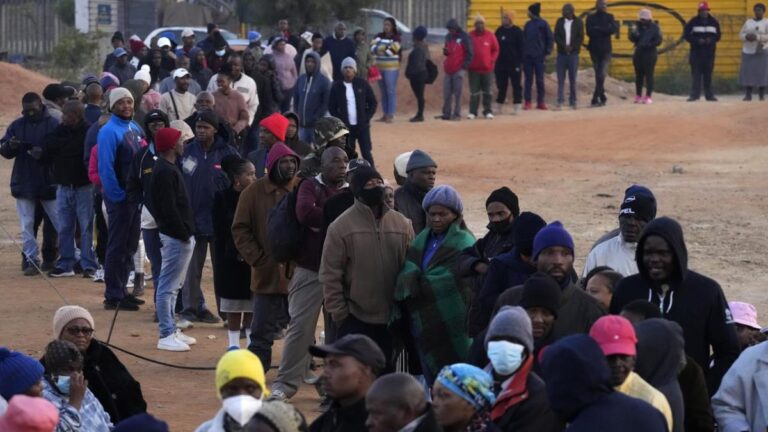Voting has begun in South Africa for an election that could mark a major political shift if, as opinion polls suggest, the ruling African National Congress loses its majority of seats.
Led by Nelson Mandela, the ANC came to power in South Africa’s first multi-racial elections in 1994 and has since won majorities in national elections held every five years, but its share of the vote has been gradually declining.
If the ANC receives less than 50% of the national vote, it will have to find one or more coalition partners to govern the country, which would be the ANC’s first coalition.


But the ANC is still expected to win the most votes and its leader, President Cyril Ramaphosa, is likely to remain in his job unless the party performs worse than expected and there is an internal challenge.
The ANC’s gradual decline has been fuelled by voter dissatisfaction with high unemployment and crime rates, frequent power outages and corruption within the party.
Voters will elect nine state assemblies and a new National Assembly, which will then choose the country’s next president.
Polling stations opened on Wednesday morning, with more than 27 million people registered to vote out of a population of 62 million.
South Africa’s Electoral Commission is expected to start announcing partial results within hours of polling stations closing.


The committee has seven days to announce its final results.
Opposition parties vying for power include the pro-business Democratic Alliance, which won the second-highest vote share in 2019 and has allied with several smaller parties in an effort to expand its support base.
The Economic Freedom Fighters, founded by a former ANC youth leader, also want to expand their influence and want to nationalise mines and banks and seize land from white farmers to address racial and economic disparities.
Former president Jacob Zuma is backing a new political party called Umkhonto we Sizwe, named after the ANC’s former militant wing.
Zuma, who was forced to step down as president in 2018 after a series of scandals, retains considerable influence, particularly in his home province of KwaZulu-Natal.

